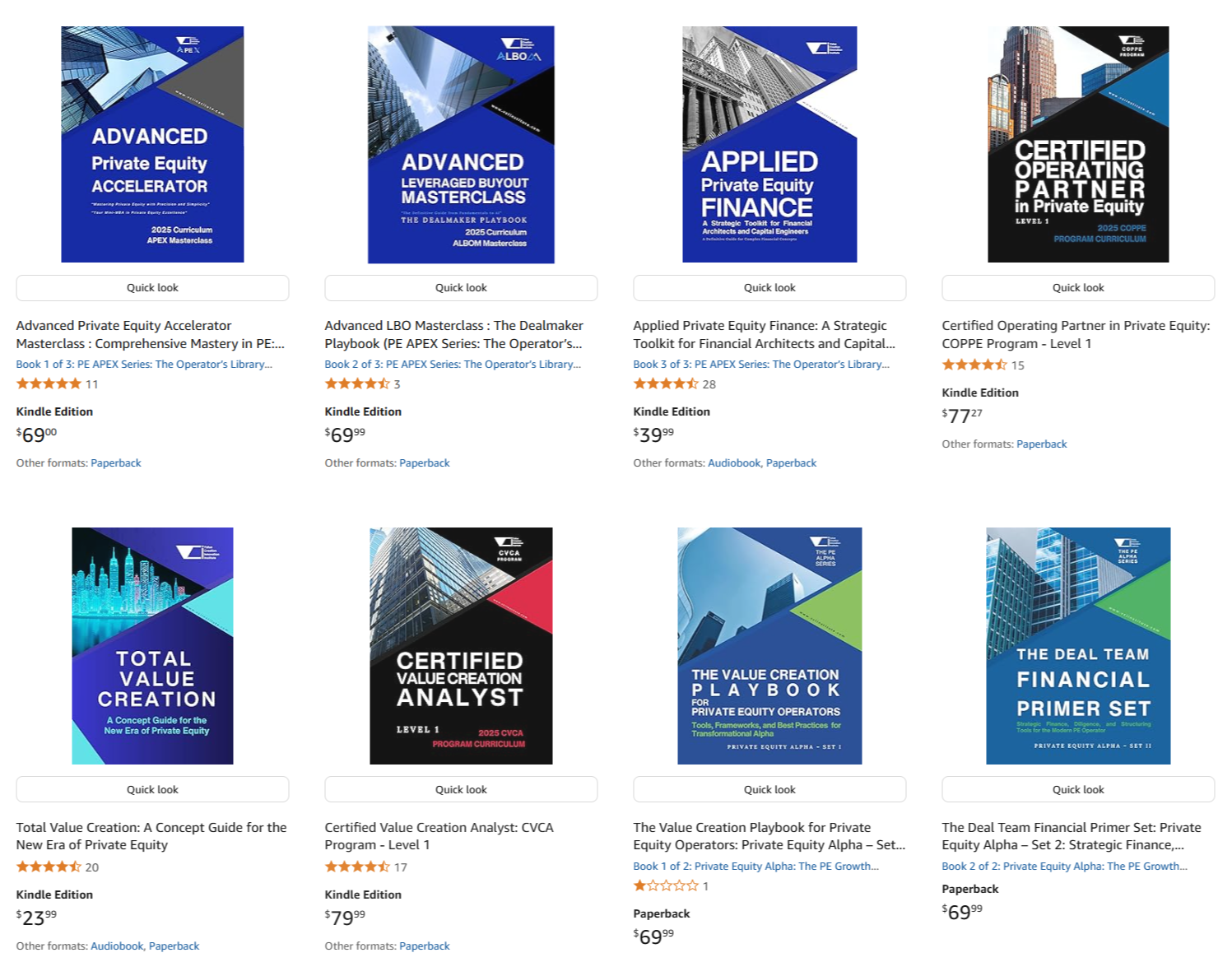Beyond Financial Engineering: The $850 Billion Operational Excellence Revolution
Aug 06, 2025
How private equity firms are fundamentally reimagining value creation through operational transformation
The Scale of Transformation
Over $850 billion in PE dry powder is now targeting operational value creation strategies, marking the largest shift in industry focus since the leveraged buyout era of the 1980s.
The era of easy money and financial arbitrage in private equity is definitively over. For three decades, the industry built its reputation on a relatively straightforward playbook: acquire companies with substantial leverage, optimize capital structures, and exit at attractive multiples. This financial engineering approach generated extraordinary returns when debt was cheap, competition was limited, and market inefficiencies were abundant.
Today's reality is starkly different. Asset prices have reached historic highs, debt costs have normalized, and competition for quality deals has intensified dramatically. The traditional levers of value creation—leverage, multiple arbitrage, and financial restructuring—can no longer reliably generate the returns that limited partners expect. What has emerged is not just a tactical shift, but a fundamental reimagining of how value is created, sustained, and realized in private equity.
Industry Evolution
Leading PE firms now deploy dedicated operating teams that represent 20-30% of their total professional staff, compared to less than 5% a decade ago. This operational expertise has become the primary differentiator in competitive deal processes.
The Great Value Creation Recalibration
The transformation from financial engineering to operational excellence represents more than strategic evolution—it's an acknowledgment that sustainable value creation requires fundamental improvements in how businesses operate, compete, and grow. This shift has been driven by several converging forces that have reshaped the competitive landscape.
| Era | Primary Value Drivers | Success Metrics | Limitations |
|---|---|---|---|
| Financial Engineering (1980s-2010s) | Leverage optimization, multiple arbitrage, tax efficiency | MOIC, IRR through financial restructuring | Limited by market cycles, regulatory constraints |
| Operational Excellence (2010s-Present) | Revenue growth, margin expansion, digital transformation | EBITDA improvement, market share gains, sustainability | Requires specialized expertise, longer implementation |
| Integrated Value Creation (Emerging) | AI-enabled operations, ESG integration, ecosystem building | Stakeholder value, competitive resilience, exit premiums | Complex execution, measurement challenges |
The Rise of Operating Infrastructure
The institutionalization of operational expertise within PE firms represents one of the most significant structural changes in the industry. Operating partners—seasoned executives with deep functional and industry experience—now occupy central roles in investment strategy, due diligence, and value creation planning. These professionals bring credibility and expertise that pure financial professionals cannot match when engaging with portfolio company management teams.
This evolution extends beyond individual hires to encompass entire operational platforms. Leading firms have built specialized teams focused on specific value creation themes: digital transformation, supply chain optimization, human capital development, and ESG integration. These platforms operate as internal consulting organizations, providing portfolio companies with resources and expertise that would be prohibitively expensive to access independently.
The Four Pillars of Operational Value Creation
Strategic Growth Architecture
Modern PE value creation begins with strategic growth architecture—the systematic identification and execution of revenue expansion opportunities that create sustainable competitive advantages. This goes far beyond traditional cost-cutting to encompass market expansion, product innovation, and customer relationship optimization.
The most sophisticated firms now conduct comprehensive market assessments during due diligence, identifying adjacencies, whitespace opportunities, and competitive vulnerabilities that can be exploited through focused investment. Digital customer acquisition strategies, international expansion programs, and strategic partnerships become primary value creation levers rather than afterthoughts.
Revenue Growth
Organic growth initiatives targeting 15-25% annual increases through market expansion and product innovation
Market Share
Strategic positioning to capture 20-40% share gains in target segments
Customer Value
Lifetime value optimization through enhanced retention and cross-selling
Geographic Expansion
International growth strategies targeting 3-5 new markets annually
Digital-First Transformation
Technology has evolved from a support function to a primary value creation driver. PE firms are systematically investing in digital transformation initiatives that fundamentally reshape how their portfolio companies operate, compete, and deliver value to customers. This encompasses everything from basic infrastructure modernization to advanced AI implementation.
The most impactful digital transformations focus on data-driven decision making, process automation, and customer experience enhancement. Cloud migration, advanced analytics implementation, and digital workflow optimization typically deliver measurable improvements in efficiency and customer satisfaction within 12-18 months of implementation.
Digital ROI Achievement
Portfolio companies investing in comprehensive digital transformation realize average EBITDA improvements of 18-25% within two years
Operational Excellence Framework
While revenue growth commands attention, operational excellence remains fundamental to sustainable value creation. Modern approaches to operational improvement focus on end-to-end process optimization, supply chain resilience, and quality enhancement rather than simple cost reduction.
| Operational Focus Area | Key Initiatives | Typical Impact | Implementation Timeline |
|---|---|---|---|
| Supply Chain Optimization | Vendor consolidation, inventory management, logistics | 8-15% cost reduction | 6-12 months |
| Process Automation | Workflow digitization, RPA implementation | 20-35% efficiency gains | 12-18 months |
| Quality Systems | Six Sigma, lean manufacturing principles | 12-20% productivity improvement | 18-24 months |
| Organizational Design | Structure optimization, role clarity | 10-18% overhead reduction | 9-15 months |
Human Capital Excellence
The recognition that operational excellence is ultimately delivered by people has elevated human capital management to strategic priority. Leading PE firms now invest significant resources in talent assessment, leadership development, and organizational capability building across their portfolios.
This encompasses systematic approaches to executive recruitment, performance management system implementation, and culture transformation initiatives. The most successful interventions focus on aligning incentives, developing internal capabilities, and creating high-performance cultures that sustain improvements beyond the PE ownership period.
Measurement and Sustainability Framework
The shift to operational value creation has necessitated more sophisticated measurement and monitoring systems. Traditional financial metrics, while important, provide insufficient insight into the drivers of sustainable performance improvement. Leading firms have developed comprehensive KPI frameworks that track both leading and lagging indicators of operational health.
Advanced Analytics and Performance Tracking
Real-time performance monitoring has become standard practice, with sophisticated dashboard systems providing continuous visibility into operational metrics across portfolio companies. These systems track everything from customer acquisition costs and inventory turnover to employee engagement scores and sustainability metrics.
Customer Metrics
NPS scores, retention rates, acquisition costs, lifetime value optimization
Operational Efficiency
Process cycle times, quality metrics, productivity indicators, cost per unit
Financial Performance
EBITDA margins, working capital efficiency, cash conversion cycles
Innovation Pipeline
R&D productivity, time-to-market, patent applications, competitive positioning
Cultural Transformation and Change Management
Sustainable operational improvement requires cultural transformation that embeds continuous improvement mindsets throughout the organization. This involves systematic change management approaches that address both technical and human elements of transformation.
The most successful initiatives combine leadership development, employee engagement programs, and incentive alignment to create organizations that continue improving independently of external intervention. This cultural foundation becomes a source of sustained competitive advantage that persists well beyond the PE ownership period.
Exit Value Creation
Portfolio companies with documented operational improvement programs command 25-40% higher exit multiples, reflecting buyers' recognition that embedded operational excellence translates to lower risk and higher growth potential.
The Future of Value Creation
The transformation of private equity from financial engineering to operational excellence represents more than tactical evolution—it's a fundamental redefinition of what the industry delivers to companies, markets, and society. The firms that have embraced this shift are not just generating superior returns; they're building more resilient, innovative, and valuable businesses.
As the industry continues to mature, operational excellence will become table stakes rather than differentiation. The next evolution will likely integrate artificial intelligence, advanced automation, and stakeholder capitalism to create value creation models that deliver financial returns while addressing broader societal challenges.
The $850 billion in dry powder targeting operational improvements represents more than capital deployment—it's an investment in the fundamental capabilities that will define competitive success in the next decade of global commerce. The firms that master this transition will not just survive industry maturation; they will lead the transformation of business itself.
We have many great affordable courses waiting for you!
Stay connected with news and updates!
Join our mailing list to receive the latest news and updates from our team.
Don't worry, your information will not be shared.
We hate SPAM. We will never sell your information, for any reason.


